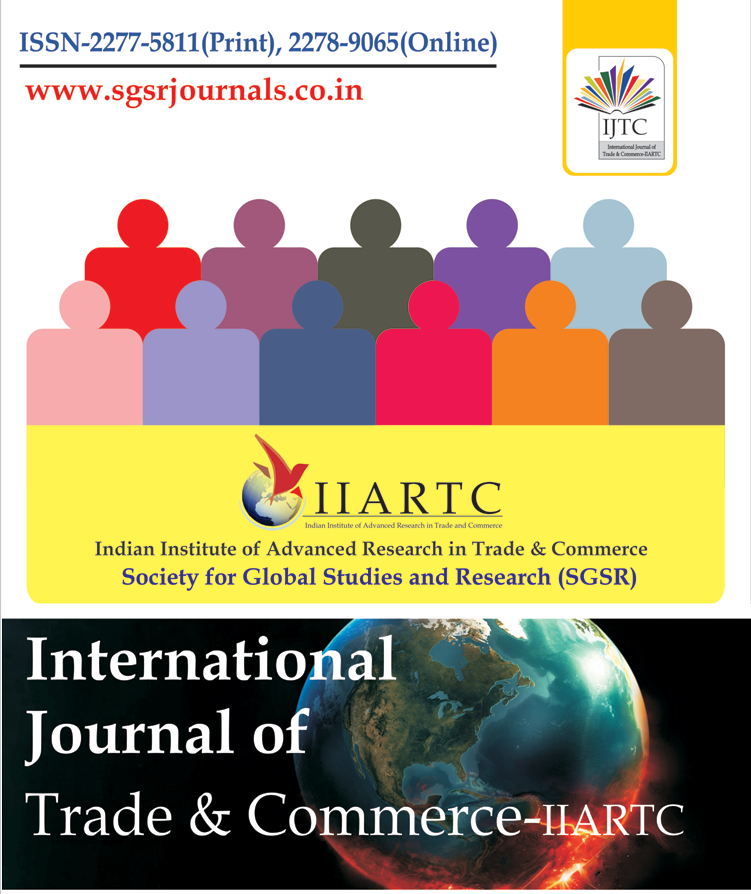Home ⇨ International Journal of Trade & Commerce-IIARTC

International Journal of Trade & Commerce-IIARTC
Impact Factor (IF):5.135 (COSMOS), IF:7.249 (ISRA), IF:3.721 (ISI)
ISSN:2277-5811 (P), ISSN:2278-9065 (O)
Frequency: Half Yearly
Liquidity Management in Hindustan Unilever Limited: An Analytical Study
The ultimate objective of any firm is to maximize the profit but increasing the profit at the cost of liquidity can bring serious problems too. Liquidity implies conversion of current assets into cash during the normal course of business, and to have regular uninterrupted flow of cash to meet outside current liabilities as and when due and payable. It also ensures availability of money for day-to-day business operations. Effective liquidity management will enable organization to derive maximum benefits at minimum cost. This study contains the liquidity management of Hindustan Unilever (India) Ltd. Liquidity management is evaluated by using the Motaal’s Comprehensive test. Statistical techniques like standard deviation, coefficient of variation, Spearman’s correlation coefficients’ test and Motaal’s test have been employed in order to examine the liquidity position and test the relationship between liquidity and profitability. The study result shows that the company enjoyed sound liquidity during the study period 2007 - 2016 but relationship between liquidity and profitability are statistically not significant.
Author:Mukesh Kumar Jain
Abstract:The ultimate objective of any firm is to maximize the profit but increasing the profit at the cost of liquidity can bring serious problems too. Liquidity implies conversion of current assets into cash during the normal course of business, and to have regular uninterrupted flow of cash to meet outside current liabilities as and when due and payable. It also ensures availability of money for day-to-day business operations. Effective liquidity management will enable organization to derive maximum benefits at minimum cost. This study contains the liquidity management of Hindustan Unilever (India) Ltd. Liquidity management is evaluated by using the Motaal’s Comprehensive test. Statistical techniques like standard deviation, coefficient of variation, Spearman’s correlation coefficients’ test and Motaal’s test have been employed in order to examine the liquidity position and test the relationship between liquidity and profitability. The study result shows that the company enjoyed sound liquidity during the study period 2007 - 2016 but relationship between liquidity and profitability are statistically not significant.




